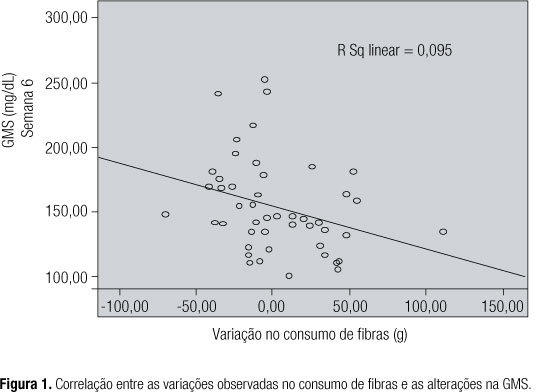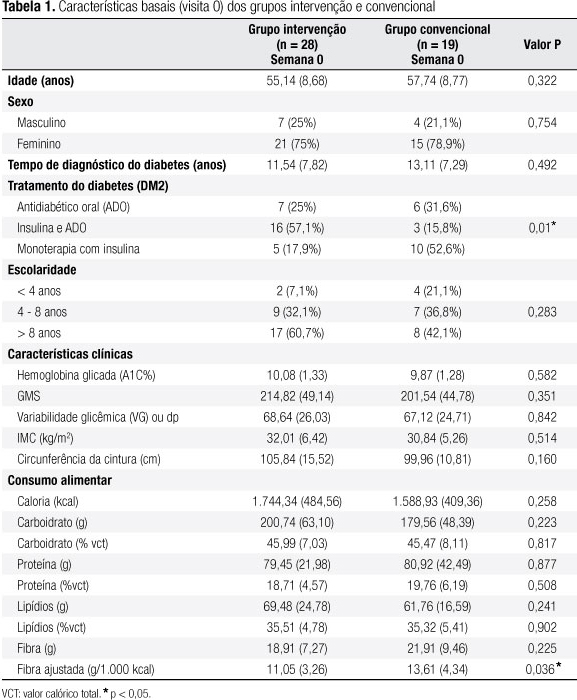OBJECTIVE: To evaluate the importance of nutritional counseling within a set of multidisciplinary interventions. SUBJECTS AND METHODS: Forty-seven patients with type 2 diabetes and hyperglycemia (A1C > 8%), treated conventionally (n = 19, GC) or intensively in six weekly visits (n = 28, GI) were analyzed. We evaluated mean weekly blood glucose (MWG) at baseline and after 6 weeks in both groups. RESULTS: GI reduced caloric (p = 0.001), carbohydrate (p = 0.004), and fat (p = 0.001) intake, and increased fiber consumption, while GC reduced fiber intake (p = 0.018). Glycemic control (MWG < 150 mg/dL) occurred in 75% of GI patients and in 31.6% of CG patients (p = 0.003), with negative correlation between changes in fiber intake and MWG values (r =-0.309; P = 0.035). Results were maintained after 12 weeks. CONCLUSION: Educational short-term intensive intervention was more effective than conventional treatment to achieve glycemic control. Our results also indicate that a more appropriate fiber content in the diet contributes for better blood glucose control in these patients.
Nutritional counseling; type 2 diabetes; glycemic control; mean weekly blood glucose



